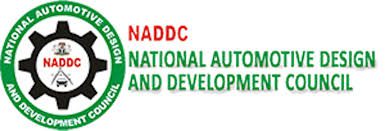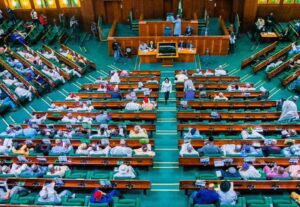
FG engages stakeholders on potentials of CNG modalities
…CNG to reduce inflation, promote economic development — DG, NADDC
By Matthew Denis and Abu Bardiyat (Abuja)
The National Automotive Design and Development Council (NADDC) a Parastatal under the Federal Ministry of Industry, Trade and Investment has engaged stakeholders on the potentials of the Compressed Natural Gas (CNG) vehicles with the goal of fostering sustainable energy solutions and reducing carbon emissions.
Speaking at the Opening and profiling session on Thursday Abuja, The Director General and Chief Executive Officer of NADDC, Oluwemimo Joseph Osanipin said, “The program will ensure that conversion centres are properly accredited and licensed to operate, with qualified technicians and standard conversion kits.”
The Director General who was represented by the Director of Industrial Infrastructural Department, Mr. Omisanya Nua stressed that the use of CNG is expected to reduce the cost of transportation and mitigate the impact of fuel subsidy removal.
According to him, the initiative has the capacity to reduce inflation and promote economic development.
He maintained that the event is anchored by the value plus creation and data technology managers in collaboration with NADDC.
The Director noted that the three-day programme will engage in thought provoking discussions, presentation and networking sessions in knowledge sharing among the participants.
He tasked participants to actively contribute and share their expertise experiences to collectively gather ideas for the success of the CNG approach by President Ahmed Tinubu renewed Hope Agenda.
Showcasing his products, the General Manager of Lanre Shittu Automobile, Mr. Kehinde John Olarewaju, noted that the innovation will create a friendly environment and atmosphere, especially for shippers, due to its installation and subsidy cost.
He added that the vehicles are affordable for the average Nigerian, providing support to the economy.
With over 40 years of experience, Lanre Shittu Automobile has been a significant player in the industry. He highlighted that the CNG initiative will provide employment opportunities across various sectors, training for IT students, and engagement for NYSC staff and university graduates.
Furthermore, he commended the government’s efforts in making automobile goods more affordable, focusing on the betterment of the economy.
Olarewaju encouraged Nigerians to embrace this innovation, expressing gratitude to the President for this forward-thinking initiative.
General Manager of Sales and Business Development at Dana Automotive, Mr. Olamide Bello, has announced that the company has established a conversion centre in Otako, Abuja, in collaboration with NASENI (National Agency for Science and Engineering Infrastructure).
This partnership aims to produce hybrid CNG (Compressed Natural Gas) and petrol vehicles from scratch, with plans to assemble full CNG vehicles, including SUVs and buses for mass transit.
According to Bello, Dana Automotive offers a range of vehicles, from 5-8, 14, to 50 seaters, which will benefit from this innovation. The advantages of hybrid CNG vehicles include reduced fuel costs, a safer environment, and less frequent servicing needs. Additionally, these vehicles can travel longer distances without running out of fuel, contributing to infrastructural development in Nigeria.
However, Bello emphasised the need for government support to ensure the availability and subsidisation of conversion kits, making this technology more accessible to Nigerians.
He stressed that this pioneering initiative by Dana Automotive has the potential to transform Nigeria’s transportation sector, reducing reliance on petrol and promoting sustainable energy solutions. As the company continues to innovate, Nigerians can look forward to a future with cleaner, more efficient, and cost-effective transportation options.
Also speaking, Brand Development Manager at Kojo Motors, Djakoh George, highlighted the advantages of converting vehicles to hybrid Compressed Natural Gas (CNG). Kojo Motors has an assembly plant in Anambra State and plans to establish another in Imo State.
According to Djakoh, the benefits of hybrid CNG vehicles include Increased service intervals due to the use of CNG as an alternative to Premium Motor Spirit (PMS) and Longer fuel mileage, with N5,000 worth of CNG covering up to 10,000 miles.
He also emphasised the abundance of gas reserves in Nigeria, which will enable increased usage and help address fuel scarcity as the Anambra State government has signed contracts with Kojo Motors to support the production of hybrid CNG vehicles, which will also create job opportunities.
“With Kojo Motors leading the charge in hybrid CNG technology, Nigeria is poised to embrace a cleaner, more efficient, and cost-effective transportation solution.”




